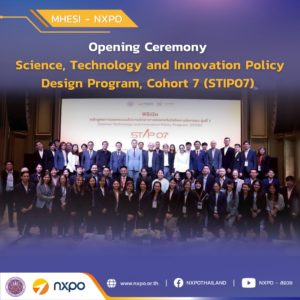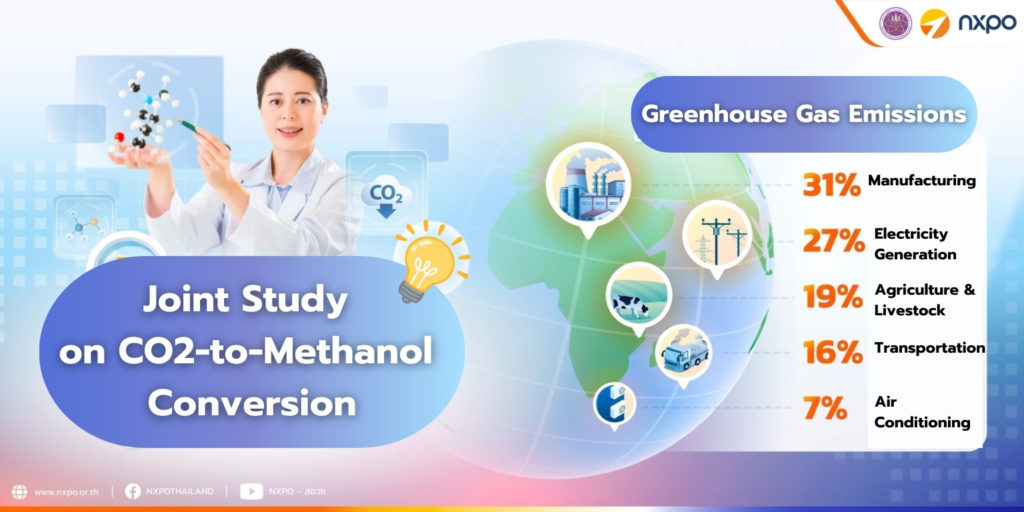
Global warming is intensifying, driven primarily by greenhouse gas emissions from human activities. The estimated contributions to these emissions are as follows:
- Manufacturing: 31%
- Electricity generation: 27%
- Agriculture and livestock: 19%
- Transportation: 16%
- Air conditioning: 7%
To combat global warming, Thailand aims to achieve carbon neutrality by 2050. Reaching this goal requires advanced technology, innovation, and the establishment of low-carbon city models through collaboration between the government, private sector, and communities.
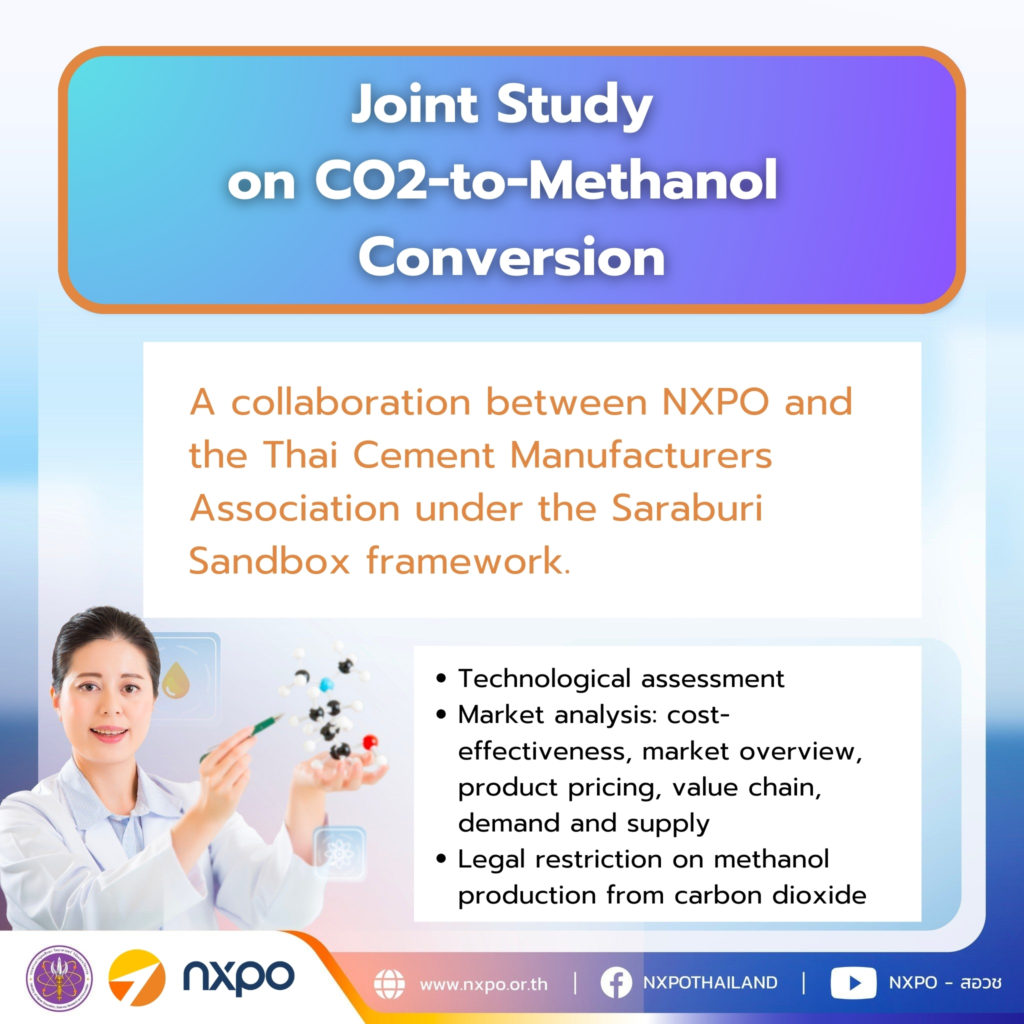
MHESI-NXPO, in partnership with the Thai Cement Manufacturers Association (TCMA), the Thailand Concrete Association (TCA), and various stakeholders, has launched the Saraburi Sandbox Project. This initiative serves as a model for a low-carbon city, utilizing research, innovation, and international collaboration. Under this framework, NXPO and TCMA have entered into a collaborative agreement to explore CO2-to-methanol technology. This project aims to transform the global warming crisis into an opportunity for green economic development, while reducing greenhouse gases and boosting the country’s innovation capacity. The CO2-to-methanol technology has the potential to cut Thailand’s carbon dioxide emissions by up to 12 million tons.
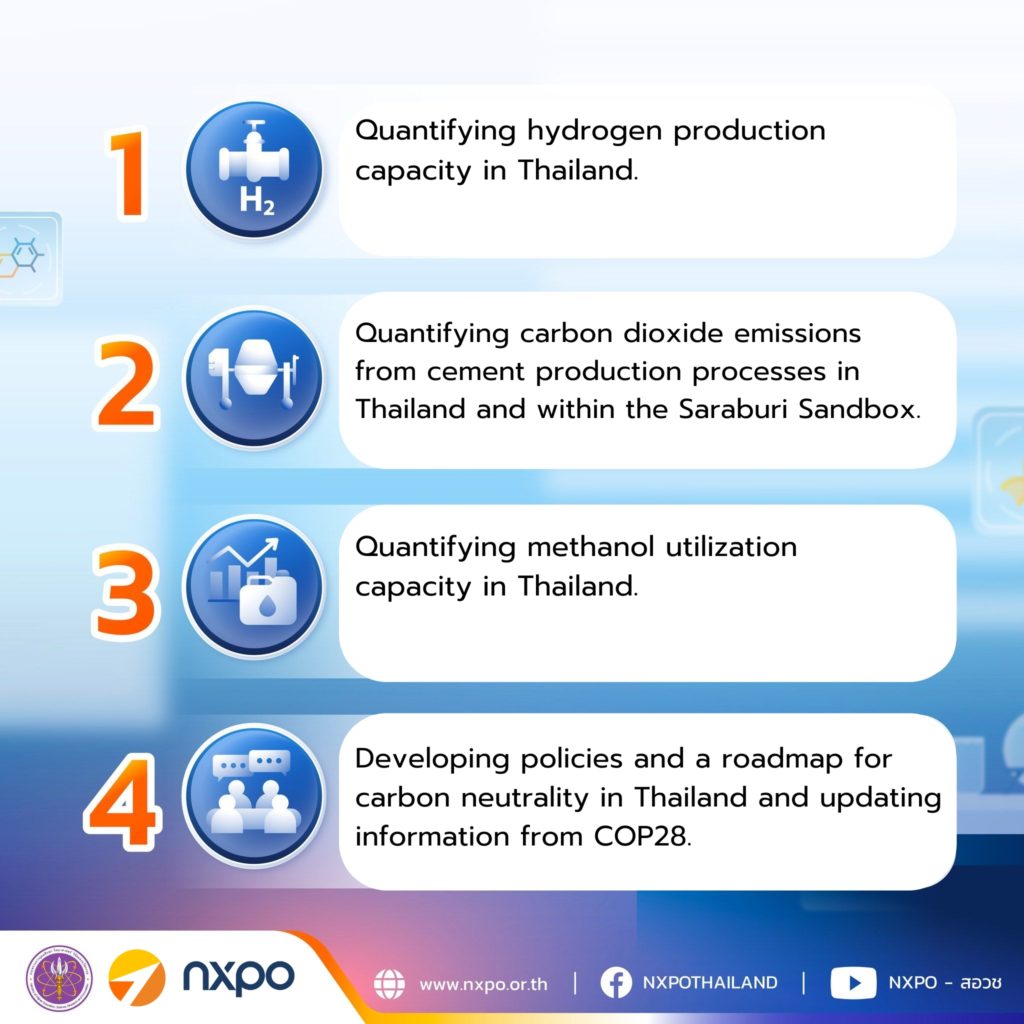
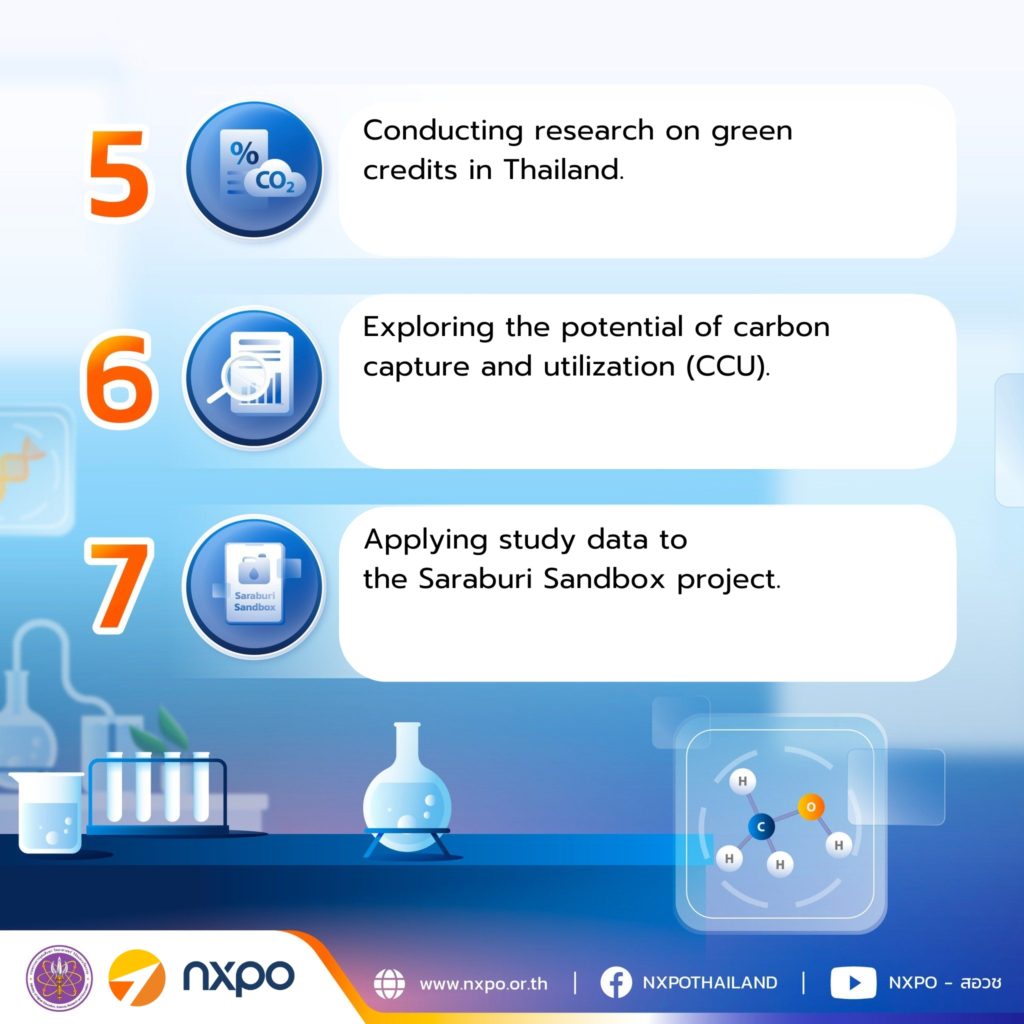
The study will assess the feasibility of producing methanol from carbon dioxide and hydrogen, encompassing technological, marketing and legal aspects. The following steps will be undertaken:
- Quantifying hydrogen production capacity in Thailand.
- Quantifying carbon dioxide emissions from cement production processes in Thailand and within the Saraburi Sandbox.
- Quantifying methanol utilization capacity in Thailand.
- Developing policies and a roadmap for carbon neutrality in Thailand and updating information from COP28.
- Conducting research on green credits in Thailand.
- Exploring the potential of carbon capture and utilization (CCU).
- Applying study data to the Saraburi Sandbox project.
The findings will provide crucial information for investment decisions in this technology, facilitating net zero efforts.
Sources:
- NXPO-TCMA joint study on CO2-to-methanol conversion
- How to Avoid a Climate Disaster: The Solutions We Have and the Breakthroughs We Need (2021) by Bill Gates


